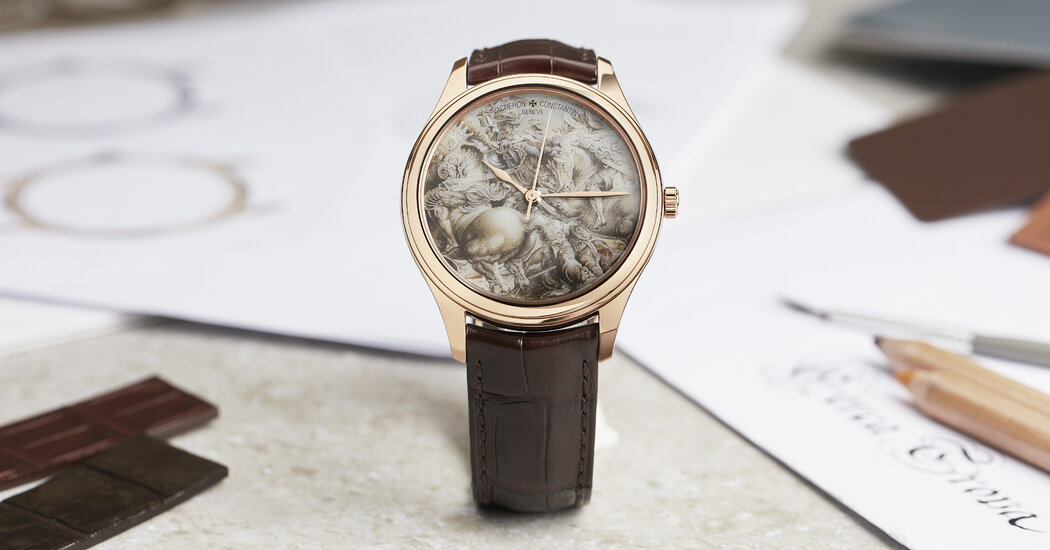
The enameled dial of a new custom watch by Vacheron Constantin depicts grimacing soldiers and their lunging horses, all engaged in deadly combat.
Unveiled in May, it is the Swiss watchmaker’s reproduction of “The Fight for the Standard” from the “Battle of Anghiari,” a 1603 drawing by the Flemish artist Peter Paul Rubens that is kept — behind the scenes, and viewable by appointment — in the Department of Graphic Arts of the Louvre in Paris.
“This timepiece is the first in a new program called ‘A Masterpiece on the Wrist’ we have developed with the Louvre,” Christian Selmoni, the watch brand’s director of style and heritage, wrote in an email. “We invite clients to choose from a catalog of works defined with the museum, and we will reproduce the artwork on the dial of a unique watch.”
To help with their selections, clients are invited to a behind-the-scenes tour of the museum’s galleries and then a meeting with an artisan from the watchmaker’s bespoke workshop, called Les Cabinotiers, which creates the custom dial. It is then added onto the rest of the timepiece, which the brand said was made specially for the program.
To capture the depth and movement of the Rubens drawing, Mr. Selmoni wrote, an enamel master in the atelier combined the technique of miniature painting with blanc de Limoges, a white powder enamel used to enhance grisaille (gray, in French) paintings.
That process, he wrote, created “a rich palette of nuanced shades” by alternating several grand feu (great fire) firings at 900 degrees Celsius (or 1,652 degrees Fahrenheit).
The watch, which has a 40-millimeter rose gold case and an alligator strap, is powered by an in-house automatic movement, the caliber 2460SC. Its rose gold oscillating weight is engraved with a view of the eastern facade of the Louvre.
Mr. Selmoni wrote that the owner, who wishes to remain anonymous, paid 280,000 euros (the equivalent of $309,571) for the program’s inaugural timepiece during a Christie’s online auction in 2020. And, he wrote, the owner chose the Rubens drawing for its intriguing back story: The Louvre describes the drawing as an interpretation of a fresco that Leonardo da Vinci created for the Palazzo della Signoria in Florence, Italy, that later disappeared.
“This was an opportunity for the collector to marry his passion for art with watchmaking,” Mr. Selmoni wrote. “He chose this drawing because of the mystery surrounding the ‘lost’ Leonardo and in the hopes of reviving research into uncovering it.”
The watchmaker’s partnership with the Louvre, first announced in 2019, has included a collection of four métiers d’art watches called Tribute to Great Civilizations, inspired by the museum’s treasures.
While many of the Louvre’s artworks are available for reproduction by the watchmaker, its most famous masterpiece is off-limits.
“We agreed with the Louvre to exclude the ‘Mona Lisa’,” Mr. Selmoni wrote. “Thousands of other artworks figure on our agreed list, many of which are not displayed to the public, and that makes them even more rare and exclusive.”






